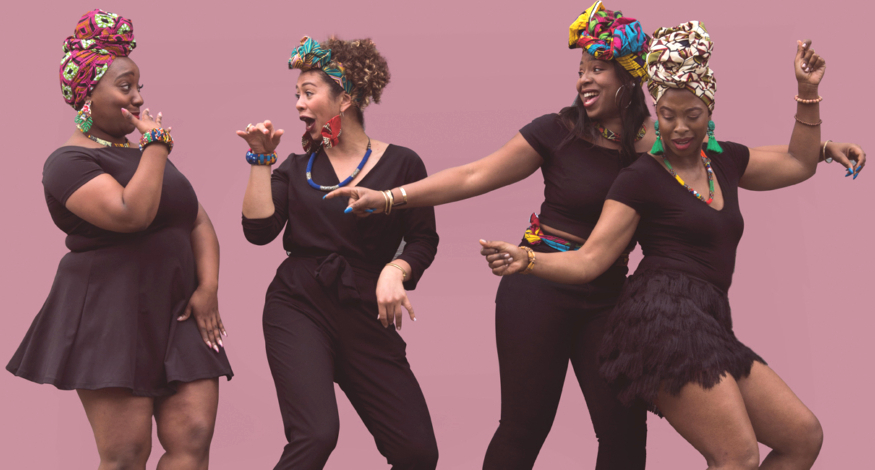
Young, gifted and black; women, four of them, telling it like it is on a blank stage. Sometimes the best theatre can force you to breathe in what it is to be human; to witness, with the least filter, real experience.
Director Jessica Kaliisa has galvanised Jessica Hagan’s inaugural play about black women’s experience of sexism and racism into a forceful cry for unity and strength. If you think that’s too heavy for a night out, think again. Eshe Asante, Tosin Alabi, Kokoma Kwaku and Elisha Robin put everything they’ve got into this highly animated, witty yet emotional performance – a rolling series of scenarios that include a job interview, office life, a Tinder date with a white guy and a night out at a club from which they are turned away for being ‘too black’. Occasionally drawing on the songs of Aretha Franklin, Tina Turner, Diana Ross and Etta James, the four actors, singing in a cappella, manage to transform the lyrics into anthems of enlightenment.
Turns out the actual incident at the night club was the catalyst for gathering more first-hand accounts of scenarios experienced by black women. It was this work that fuelled Hagan’s play. Co-writer Ryan Calais Cameron helped to transform the script into rhyme, arming the words with powerful rhythm and sometimes repetitive resonances, as a chorus does to a song. Recalling the experience of trying to ‘fit in’, one memorable sequence has the women overtly nodding and smiling, lest ‘the boss’ should take against them. Later, there are hilarious re-enactments of being chatted up, in which Kwaku and Alabi transform themselves into sassy males on the prowl, with well-observed body language and movement.
Yes, this is a black woman’s cry for sisterhood, for r-e-s-p-e-c-t and a healthy sense of self-love. But the theme will resonate across colour and age to chime with any who have experienced or witnessed discrimination and unwanted sexual advance or have simply striven for acceptance. In the Q&A that followed the performance, Kwaku said she had been moved by a white middle-aged man who had openly cried during one performance on the current tour.
Crying was immediately evident in the opening moments. Asante walks on alone. We are the mirror on the wall. She examines herself through us and finds herself wanting, not enough, not right. Tears fall down across her cheeks as she summons the pain of visceral shared experience. But once her sister ‘queens’ emerge on stage, their collective youthful power blows away the blues, sometimes touches on fury and frustration, but never leaves laughter far behind.
By the end, they have found strength in their friendship and joy in their new resolve and sense of self-worth. Having “inhaled so much hate”, they can, at last, “exhale magic”. In that there is freedom. ★★★★☆ Simon Bishop 7th November 2019

